When the grid goes down, everyone scrambles to find ways to get access to whatever electricity they can from solar panels, battery-powered devices, and generators. You probably already are stocked up on things like non-perishable food, firearms, and essential medical supplies.
Yet what about times when the grid goes down and stays down for days, weeks, or even longer?
Do you have the powerless items, tools, and supplies to survive a prolonged grid failure? If you’re not sure, you might want to look through this list, to see if there are any tools and items you need to add to your survival strategy.
If you would rather watch the video instead of reading, the clip is posted below. You can just skip for the written information.
Wood Cutting Tools
The longer the grid is down, the more valuable wood-cutting tools become. Having a hatchet, a wood-cutting axe and a splitting maul on hand gives you the ability to process wood into usable chunks.
This ensures that you can always make a fire to do things like boil water, cook food, and stay warm. Because in reality propane tanks and camp stove fuel cells run out much faster than you might think. Even the GIANT ones.
A good hatchet is also a great survival tool. It can easily double as a hammer or a cutting blade for bush crafting. It can also help you make quick work of butchering a deer or a feral hog. Especially when time is of the essence in warm weather, and you need to break the animal down into pack-size pieces to haul back to camp quickly.
In addition to correctly handling wood-cutting tools, you also need to know how to start a fire, and especially how to maintain it. Also, remember that wood can be used to build log houses or smaller shelters. Learn all about its uses in The Lost Ways 2 (it’s very affordable and still available in physical format).
Fire Extinguisher
A good fire extinguisher is a critical safety item to have when the grid goes down and you need to maintain a fire for functional purposes. If you’re not an avid camper, you and other members of your group might not be used to keeping a controlled fire for cooking and boiling water.
Accidents happen and can be very damaging if you keep that fire close to the house or in the garage. Having multiple fire extinguishers on hand in key locations will help you put out accidental fires before they can cause harm or compromise your shelter.
Water Filtration and Purification
If the grid goes down, it will take the municipal water system with it, leaving you with just the water you have on hand. Once this dwindles, your only means of staying hydrated will come from natural sources that you’ll need to filter and purify.
Having a LifeStraw or similar device, and water purification tablets for everyone in your group is a good starting point. Clean, BPA-free, food-grade storage containers and a safe place to store them let you keep water on hand for boiling and bathing.
Having clean tarps, funnels, and even fine-mesh paint strainer bags will give you the ability to collect rainwater and relatively clean flowing water. These simple things make quick work of removing bits of tree bark and larger particulate matter before boiling.
Pro Tip
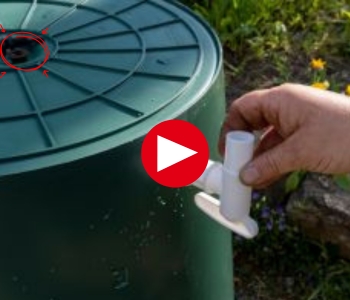 Although the solutions I’m offering you are effective, I personally choose not to be put in a position where I have to react, but to prepare in advance with reserves of clean water. I’ve built up a significant stock, which I constantly renew to ensure the water hasn’t deteriorated in any way.
Although the solutions I’m offering you are effective, I personally choose not to be put in a position where I have to react, but to prepare in advance with reserves of clean water. I’ve built up a significant stock, which I constantly renew to ensure the water hasn’t deteriorated in any way.
Related: Why You Need To Hide Your Harvested Rainwater
I’ve tried many methods to achieve independence in this regard, and I’ve concluded that the best one is the same method our brave soldiers use on the toughest battlefields in the world.
The Water Freedom System, as it’s called, is a project I treated as a personal challenge—and I managed to build it quickly, without fancy tools or advanced technical skills.
It’s simple, affordable, and extremely effective. Since installing it, I haven’t used anything else to get clean water fast. I recommend taking a look here and seeing if it fits into your prepping plan. If you ask me, it will definitely change the way you think about storing water for SHTF and beyond.
A Small Woodstove & Insulated Stove Pipe
If the grid goes down in the wintertime you need a way to keep your home or shelter at least modestly heated. Unfortunately, homeowners’ insurance makes it prohibitively expensive to have a wood stove or fireplace in normal times. Chances are good your current home’s chimney is not set up to support adding a wood stove.
Being able to have heat indoors without it burning down the house, smoking you out or killing you with carbon monoxide is trickier than you might think! Having a small rocket stove or a DIY wood stove is a good start.
Some simple stove pipes with a 90-degree elbow pipe and an insulated stove pipe will let you shunt the smoke from the wood stove out a window. You can then fill the gap in the window with plywood, and a double-walled insulated chimney collar will keep the insert from burning.
This is the sort of DIY wood stove kit you can keep unassembled in your garage to stay compliant with your homeowner’s insurance during normal times. Yet ensures that you can have sustainable means of heating your home in a disaster, that installs in just a few hours.
Charcoal or Wood-Fired Smoker
In the case of a prolonged grid failure, you’ll need to source fresh protein by hunting game, and a charcoal or wood-fired smoker is the best way to preserve excess meat. The problem is that those improvised smokers you see on fake wilderness survival shows rarely ever work.
Related: This Super Root Preserves Meat Indefinitely!
You need a proper way to seal that meat away from flies and passing rain showers. It also helps to be able to precisely regulate the heat and flow of the smoke so that you’re actually drying the meat into jerky without simply cooking it.
These powerless smokers are slightly different than the propane smoker or the grid-dependent wood pellet grill on your deck. The good news is that they’re relatively inexpensive and easy to use.
If you don’t want to invest in a smoker you might not use for weekend cookouts, you should at least have two dozen cinder blocks, expanded metal grates, and sheet metal to create an improvised one. Trust me the stuff they make out of sticks and tree bark on TV is not the way you want to go.
Fermentation Crocks
 If the grid is going to be down permanently or for more than a month, having a few fermentation crocks will do more than help you preserve food. Fermentation crocks in particular let you pickle most vegetables and make things like sauerkraut in large batches.
If the grid is going to be down permanently or for more than a month, having a few fermentation crocks will do more than help you preserve food. Fermentation crocks in particular let you pickle most vegetables and make things like sauerkraut in large batches.
Not only does this give you a big supply of preserved food. Properly fermented foods also have more probiotic value, which supports gut health and the immune system.
Since you’ll be able to preserve large batches of food, you can even trade the excess to other people who aren’t as well prepared. Setting up a barter system where you’re trading away sauerkraut and pickled beets to hungry neighbors to get the things you need is much better than being forced to barter with firearms and major valuables.
Sourdough Starter Kit
The ability to capture wild yeast and maintain a sourdough starter will ensure you can make belly-filling bread when the grid goes down. However, there’s a lot of art and science to maintaining an active starter, and not all natural forms of wild yeast are palatable.
Having a sourdough starter kit with stabilized yeast on hand, lets you make the most out of the flour and other grains in your prepper stores. You can get a simple kit with a sterile container and everything you need to get it working properly for very little. They tend to have a shelf life of 2 to 3 years with proper storage. Once activated, you can maintain a sourdough yeast culture indefinitely.
Of course, the breads you can produce with it aren’t just belly-filling for you and your group. Quality, flavorful bread will become a highly valued commodity for bartering the longer the grid stays down.
Cast Iron Dutch Oven & Frying Pan
When the grid goes down, you can technically cook over an open fire with regular pots and pans. However, they’ll be prone to scorching, and pans in particular ruin easily.
Yet old-fashioned cast iron can take a lot of punishment. It has a centuries-long proven track record of cooking food and boiling water over an open fire.
Ideally, I recommend having at least two cast iron Dutch ovens. You can reserve one for making soups and stews over an open fire. Then you keep another one for baking and as a backup for boiling water.
You can easily bake bread, muffins, and even roast meat in a cast iron Dutch oven. You can even bury it with coals to keep your food safely roasting while you’re away from camp, or to minimize the smoke signal of your camp’s fire.
A Bulk Amount of Salt
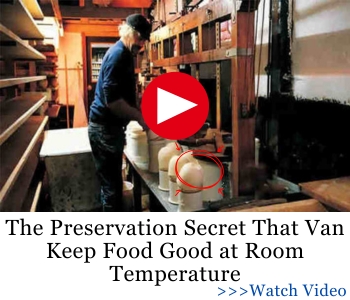 If you can’t smoke meat or ferment vegetables in crocks, then salt is your last, best means of preserving food. It’s a method of preservation that’s centuries old, and costs very little. Since it’s a rock, salt never spoils.
If you can’t smoke meat or ferment vegetables in crocks, then salt is your last, best means of preserving food. It’s a method of preservation that’s centuries old, and costs very little. Since it’s a rock, salt never spoils.
So, you can keep an enormous amount of it in a sealed bucket for decades if necessary.
The volume of salt you need is typically 3 to 5% of the weight of the meat you need to preserve. This is better for thinner pieces of meat less than 1.5 inches thick. You can also add a small amount of sodium nitrate into the mix.
This “Pink” salt will help preserve the color of the meat and boost the effectiveness of the ordinary salt.
During the Cold War, the U.S. military a superfood designed to feed the entire population in the harshest conditions. It cost millions to create, but you can make it at home for just $0.37/day.
In the right conditions, it can last for decades, keeping your family fed for only a few dollars.
Salt was and still is a key ingredient, not just for flavor, but for preservation, making it vital for long-lasting survival recipes. You can discover the full list of ingredients and many other long-lasting recipes here.
A Solar Oven
If the grid goes down from a flood, hurricane or similar natural disaster, you might not have the ability to make a fire. This is a time when having the supplies to make a solar oven comes in handy. On a day with good sun, you can even use them to simmer water and heat up canned food to make it more palatable.
There are fancy solar oven kits you can buy online that are well worth the money. In a pinch, you can even improvise a solar oven from an old pizza box, shiny aluminum foil, and self-sealing plastic wrap.
The Amish community makes extensive use of ovens like these, as they are experts in powerless solutions. The Amish have even developed refrigerators and air conditioning systems. These solutions work flawlessly and help community members lead a very safe and even comfortable life, free from dependency on public utilities.
You can see how these ideas are put into practice and how you can implement them in your daily life using The Amish Ways Book. Why this book? Because you have the opportunity to learn from one of them. The author was born and raised within the community! In this book, as well as in the Academy, he reveals Amish secrets that have never been shared before!
Hand-Crank Flashlight (or Manual Rechargeable Lantern)
When the power goes out and batteries become a limited resource, a hand-crank flashlight gives you reliable light without relying on anything that runs out. These flashlights work by turning a crank that charges an internal battery or capacitor. In other words, you can generate light anytime, anywhere—just with the strength of your own arm.
Related: The Best EDC Flashlight For All Uses
It’s a small item but incredibly valuable when you need to check the perimeter at night, search for something in your shelter, or simply move around after dark without wasting precious batteries.
Some advanced models even include USB ports so you can charge your phone in an emergency. Even if you don’t have signal, your phone can still serve as a backup flashlight, a map, a calendar, or a journal.
>> The Cheapest Way to Buy Emergency Radios in America
Waterless Toilet
One of the most overlooked problems in a prolonged blackout is… what do you do with waste? Modern plumbing relies on electric pumps, and if you’re not connected to a septic tank, you could be in for a nasty surprise after just a few days.
A waterless portable toilet with a composting system gives you a clean, safe, and reusable solution. It helps keep your shelter sanitary and odor-free, and the resulting compost can be used to fertilize non-edible plants if needed. Most importantly, it drastically reduces the risk of illness and contamination—a very real danger when the grid is down and basic sanitation systems fail.
Final Thoughts
When the grid goes down, there are a lot of powerless items that have the power to help you survive. Simple things like a portable wood stove, cast-iron Dutch oven, and fire extinguishers have immediate use potential, to get you through the grid being down for a few days.
If the grid is going to be down for weeks or you’re staring down the barrel of a prolonged disaster, food preservation items become must-have items. This includes things like a charcoal/wood-fired smoker, fermentation crocks, and salt.
Of course, the longer the grid is down the more wood you’ll need to harvest and process. That’s where things like a hatchet, ax, splitting maul, or even a hand saw become necessary survival tools.
The biggest mistake you can make is neglecting the importance of water. Make sure you have access to a stable and safe source of clean, healthy water. This portable water generator can help you in any circumstances. Find out what it involves and how you can set it up at home or even at your bug-out location.
You may also like:
7 Powerless Items You’ll Need After An EMP
This Is How You Will Survive The Next Big Blackout (Video)
These 20 States Will Go Dark This Summer. Do You Live in One of Them?
When a Strike is Imminent… Do This First

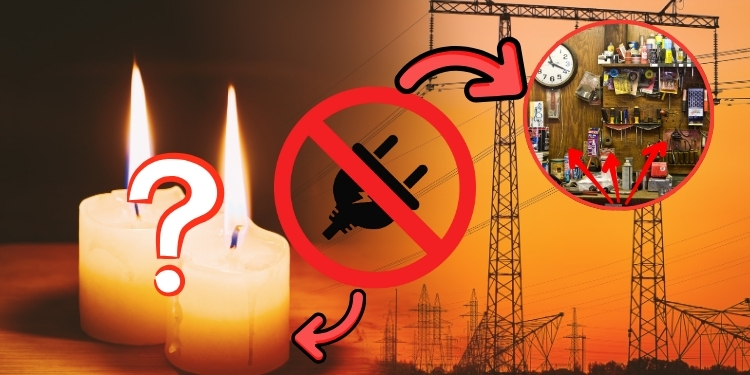
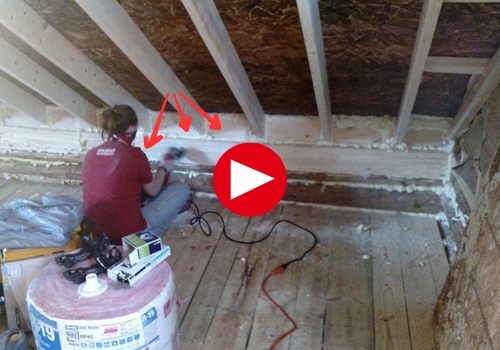
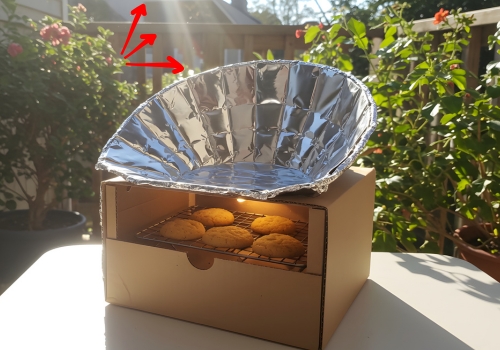







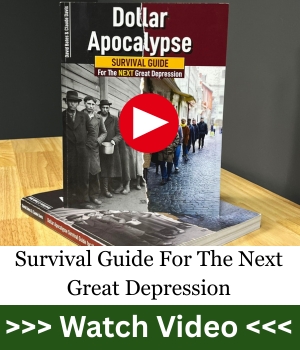



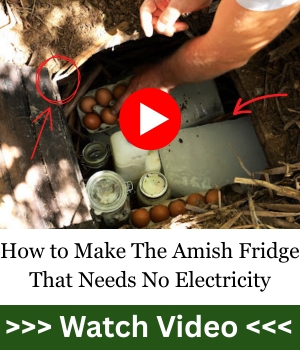

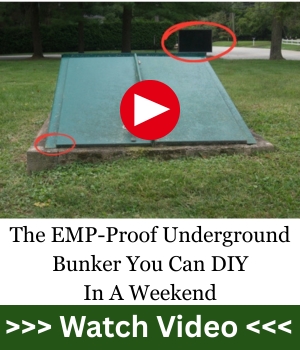






Howdy from high in the desert swamp,
I have been getting hand crank and manual tools for several years. Chisels, several different saws, multiple hatchets, axes, drills, gimlets, paracord and wood carving tools. I also have multiple packs for someone who got caught out and away from their spot.
I went past a stalled car the other day and the young man looked distressed. I pulled over and went back. He was a mess. Trying to talk on his phone and run his fingers through hair and stomp a foot mess. No exaggeration. Finally got him calm somewhat. He had run out of gas. He called 9/11. A not so happy cop showed up and had a can. He got it started, nodded at the cop and took off. He had plugged up a lane so people passing were not friendly and you can fill in the faces and gestures. The cop and I had a very interesting discussion after this. I asked, what happens when the powers that be turn off all the vehicles remotely? Or the Chinese do an EMP and it’s a divided road in town and all these people are just like or worse than him? And, He told me he would “walk home, get my bike and ride to Grampa’s house and stay there watching horses.” He asked what would I do? I said walk home and stay put. He stared at me a few seconds. Yeah, that’s probably best. I was pulled off to the side and he made a hole for me to leave. I thought for a second and pulled into a parking lot. I checked to see what I had in my SUV. I have an old mailman canvas letter bag with “stuff.” I had my hat, walking staff. I have a hatchet and a folding saw. That same cop came by and saw me with back open and looking in. He pulled up and smiled. He asked what I have so I showed him and why. He got his notepad out and wrote a list.
I have fire starter, several ways to cut wood, wood shavings or fabric but get a fire started if needed, first aid, two hand weapons, and some hobo fishing gear which I actually use quite often. He asked what the mini cheese grater was for? I use it to make shavings to try and save my shaking hands and fingers from sharp knives. He looked at it and said wow. I would never have thought of that. I asked what time he was off. We met that afternoon. He told me he told his Grampa about me and he said I was a genius. He was reading on being prepared but my scenario hit him. What would he do as a cop and as a human? He told me his Grampa’s name and I know him. Good fella.
I thought more on this non electric situation and really the only thing lacking is bulk water storage. I can always improve I know but the glaring issue here is water and sanitation. I did notice the amount of people driving by and being unhappy with waiting mere seconds. I was able to imagine all lanes blocked and the vehicles are dead. This town would be a disaster and lawless in a week if not days. I waffle between bug out and bug in. I have my answer. I’m staying in my home as long as it’s there. I told a couple people about the incident and told them to drive somewhere and stop. That’s it. Whatever you have is it until you can make it home. What are you going to do? Each one was same thing. Silence. Studious face and hmm.
I may not last two days but it won’t be from lack of effort. Many others will be in bad shape very quickly and this is dangerous.
If someone broke down inconveniences people to where they shoot the finger, mad face gripe and stomp on the gas to roar by? Oh boy. Run the scenario where you live. All electronic vehicles made in the last 15 years gets shut down. Even if you have an old Studebaker you are still stuck because of traffic. If it’s an EMP, many people will have to deal with the planes crashing nearby as well. I ran all this through my head and the cops head from one young man running out of gas and the aftermath of a minor inconvenience.
That scenario while standing there watching the reactions was sobering. If that’s all it took, and we lose all electricity and electronics???
Remember the Alamo
Remember 9/11
Remember North Carolina
Remember to have your soul prepared-especially this
Don’t forget some hand files to sharpen things.
That’s one of the best real-life scenarios I’ve read here. Water and sanitation really are the weak points for most of us. Thank you!
There is so much bad mouthing about the Boy Scouts these past few years … but who I am, is based on having been a boy scout, and having a really cheap father. The boy scouts taught me to be prepared, something I through my life have always taken to heart. (though early on, mostly with canned goods) … I got in the habit, when I had a dollar extra in my budget to buy an extra canned good, rotating stock now and then, but keeping it aside, away from my normal food stuffs. Of course now it is dehydrated and freeze dried, though I have access to a lot of canned goods in my pantry …. incasea.
My father being extra cheap, was reality. Sure he worked hard with a full day time job, making decent money, but as a musician he also had multiple nights a week playing music, that he got paid for. And yet as a family unit, we did without a lot of things other families had and took for granted.
As an adult, changing my lifestyle, a new job, upgrading my housing to a much better and safer neighborhood, I found myself 3 days before payday and penniless. I didn’t even have the gas to get home. I asked my father for a $10 loan even suggesting I would pay him interest on the money that would be returned in 4 days. His response “Things are tough all over …” and he didn’t give or loan me any money. A month later he and my step mother went on vacation in Hawaii.
I hated that aspect of him, having to buy my first bicycle with money I received mowing neighbors lawns. But … as I worked throughout my life, I got a reputation too … of being frugal. Very tight with my money. I never made a lot during my working careers, never had a lot of money, but bought land, then a house, and always had a car or truck, which were always paid for.
Now retired, no debt, that frugal lifestyle I lived all my life, has changed … if I see a new pew pew I want, I buy it. I have all the money I need for what ever I want, or am capable of doing. Buying preps, for myself and my son … who some of my dad and me rubbed off on.
I loved the boy scouts, and am prepared because of them. I disliked my father for his cheapness, yet I followed his path, and am myself more comfortable due to it, and raised a son who is also reaping the rewards of frugality.
My Dad was an executive for a minor oil company and made decent money, but he was also cheap! We ate more canned beans than most hobos, and he was the only adult I knew who didn’t use a credit card. He bought me a car in high school, an ancient VW beetle for 100.00. With his boss, he dined at the Petroleum Club in Dallas once a week. HL Hunt, at that time the world’s richest man, would show up, his cronies would order prime rib and fancy French wine but HL Hunt carried a sack lunch and would have a peanut butter sandwich and a glass of water, making him my Dad’s hero. More than once I was embarrassed coming home from school with my buddies and finding my Dad sitting out in front of the house sharpening my Mom’s butcher knife on the curb stone. As you say, it all wore off on me and I became the cheapest sob ever, been enjoying debt free retirement in a beautiful house with land for years now as a result.
That’s a great story. Funny how what embarrassed us as kids often ends up being the exact wisdom that saves us later in life. Debt-free retirement is proof it worked.
The Scouts really did teach valuable life skills. Frugality and preparedness go hand in hand—you turned what you didn’t like about your dad into a strength for your own family.
Great comments, but let’s not forget the percolator coffee pot and manual coffee grinder. 🙂
Absolutely—coffee is more than a luxury in a crisis. A percolator and grinder can keep morale up when everything else is falling apart.
Is there something wrong with a percolator and coffee grinder?
Not at all—percolators and grinders are simple, durable, and don’t need electricity. In my book, that makes them perfect.
All well and good but what happens if you run out of coffee?
For me, being English it was always tea that I couldn’t live without, as I started down the prepping road I started thinking about what could be easily sought and foraged rather than niceties from a shop. I started drinking my own foraged herbal tea (nettle, dandelion, pine needle, clover etc) and always carry those little metal infusion balls but learnt that I actually don’t need those either, just a pot to put the ingredients in then boil… And the health benefits from those foraged items are really beneficial.
So for me, I learnt to forage but also collected loads of different hand tools, many that needed repairing. I taught myself how to use and maintain those tools.
I also went completely back to basics on everything, realised I was rusty at many things I hadn’t done for many years so relearnt those skills so they have become second nature again.
My emergency bag in my van has a Kelly Kettle (amazing item), some basic tools, a good knife and hatchet, a couple of litres of water (changed regularly), pencil sharpener for wood shavings from sticks, fire lighting rod, a basic 1st aid kit (plasters, blister packs, antiseptic etc), warm and waterproof clothing, small sleeping bag and tarp, plus some long life, high calorie food like pemmican. I’ve also got a spare pair of broken in and comfortable walking boots and thick woolen socks with the bag, map and compass.
That, along with my knowledge, I could easily prevail for a couple of days without worry which would allow me time to fully assess any situation calmly I’d like to think.
As always, water would be the first thing sourced if I couldn’t get home or no help available or a breakdown of society.
Cheap
There need to be limits.
Let’s avoid hurting our kids. You find the limits,
I think its between needs and wants.
Let’s teach how to eat better, and for less. As well as for free off the land.
Well said. Teaching the balance between needs and wants might be one of the most valuable survival lessons we can pass on.
Disposal of human urine and feces? (I’ll use soft language for all the delicate ears.) How ’bout the system my Grandpa used on his dairy farm in Wisconsin, a two holer over a deep trench, maybe 50 feet or more from the house. These were called outhouses. Just one thing. In winter, keep a good stick handy to knock down the accumulating pillar when it gets too close to the top.
Exactly—outhouses worked for generations. Simple, effective, and no electricity needed. Just got to plan for winter like you said!
I would suggest having some kind of can opener too. A handful of the P 38 can openers would make great bartering items.
I carry one in my pocket.
P51 is half an inch longer and easier for old hands to hang on to. Either is a yes to have. You can also take the can and rub it on concrete. It sands away the sealing edge. Another way to open a can before using a knife or slamming it on something.
That’s a great point. A can opener is one of those little things people forget about until they need it. The P-38s are tough, take up no space, and like you said, they’d be perfect barter items in a long-term grid-down. Food in a can is only as good as your ability to open it. I keep a few tucked away in different bags and kits just in case.
AND, a good pocket knife has a built in can opener, P 38 style basically.
its so easy to overlook, best to have at least 24 spare. If they are rubbing on cement, they will give almost anything to save that labor.
Which brings up more ethics, if you can get them to over trade, should you ?
Again, between you and God, like checking other peoples punctuation.
I appreciate the information and this one begins to cross into the real idea but does fall short. Simply stated “do not store and hoard for when the power goes out”. Transition your life to a 1920 or 1880 “base” now and live with 2025 as luxury items on top of that daily base. Example; you do not need filtration straws and multiple water storage racks if you live off a well everyday. Have the luxury of an electric pump but get the parallel “mechanical” pump in asap and use it often. Transition your home to a local sourced heating fuel (comfort and water heating) now and use it now. If you are really serious transition to a local source cooking fuel system in your kitchen versus just an outdoor cooking option. The biggest issue with alternative electric power is the wattage need. Transition your home now into parallel electric systems. Install a stand-alone low voltage system for LED lighting, electronics, security systems, etc that functions on lower wattage system designs with easy to afford deep cycle batteries. The luxury high wattage items like HVAC, washers, dryers, welders, and machine tools are then on grid or scheduled generator runs. The more you live every day like the 1920s or 1880s the less impact any disruption for any reason will have on you and your family. Stop planning for it and just start living it.
That’s a solid philosophy, and I agree that living it now is a good way to build real resilience. At the same time, not everyone is ready (or even able) to make that full transition yet.
That’s where lists like this come in hand. They give folks a starting point, a way to begin filling in the gaps until they can take the bigger steps you’re talking about.
The truth is, even small steps like having a Dutch oven or a water filter on hand can make the difference between panic and survival.
Long-term, living closer to the 1920s baseline is the goal — but for many, these tools are the bridge that gets them there.
Amen staff.
in todays world, 12 volt batteries DONT last like they once did – due to Gov. regulations on materials used.
I have been told Epsom salt to rejuvenate lead acid Batt. true or false ?
1920’s in the upper mid west, a small windmill running a car generator and or water pump ( to fill tower tank) , well, everyone had them ( before REA / TVA)